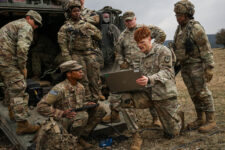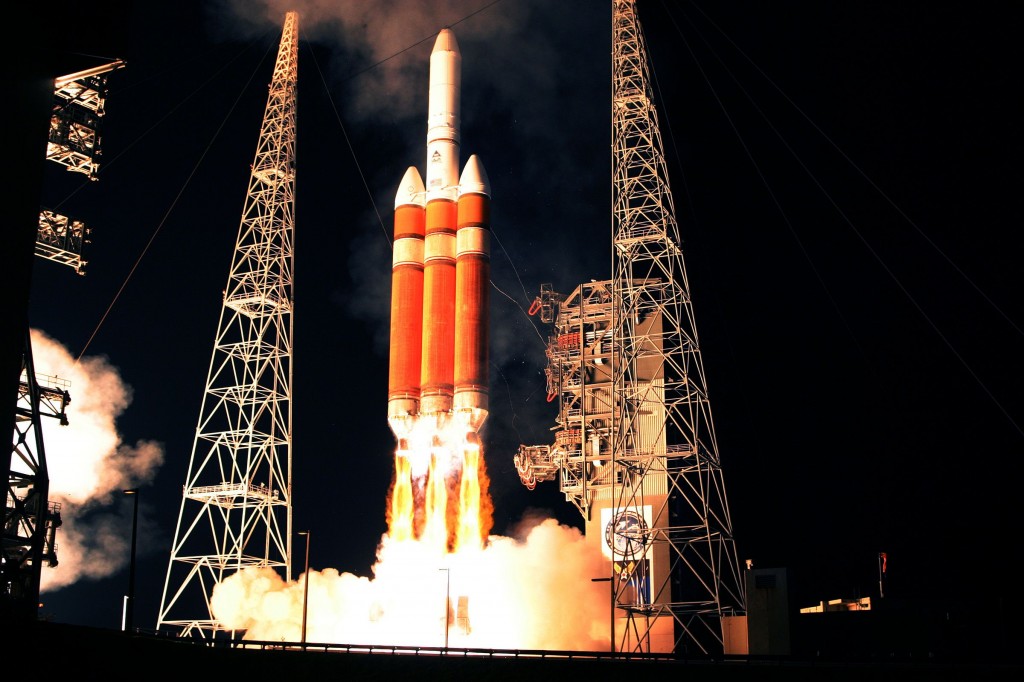WASHINGTON: When you’re a disruptive company owned by a disruptive personality you tend to do things that disrupt your industry, and SpaceX and Elon Musk must be the most publicly disruptive pairing in America right now.
Now he’s filing a protest against what is potentially his biggest customer, the US Air Force, for giving the business of seven to eight launches to his arch-rival.
Musk, obsessed with making interplanetary space flight affordable and useful, has elbowed his way pretty successfully into a club dominated by the monopoly known as the United Launch Alliance, a very strange company built in 2005 by defense giants Lockheed Martin and Boeing to share the financial and technical risks of launching big rockets. (We won’t mention the scandal that preceded it when Boeing had to explain how it got more than 25,000 proprietary Lockheed Martin documents related to its rocket business.)
Musk has built a series of rockets with the goal of sharply reducing costs and increasing the simplicity and reuse of major parts of rockets. His Falcon rocket and its cargo ship, called Dragon, has carried supplies to the International Space Station four times. Now he wants to launch big satellites for the Air Force and for the National Reconnaissance Office, maker and operator of our nation’s spy satellites. But he can’t do that until the Pentagon certifies that SpaceX’s systems meet the military’s demanding standards. Air Force and Office of Secretary of Defense officials recently told Congress they believe certification will occur quite soon.
But Musk is clearly furious (or at least really peeved) that his company — even though it’s not certified for military launches — was not awarded any of the heavy launches that were recently granted to the big guys at ULA. He’s been pulling every congressional lever he can get his hands on in both the House and Senate to press his case that the Air Force action was unwarranted, anti-competitive and, given ULA’s use of Russian RD-180 rocket engines, downright unAmerican. Air Force and OSD officials told the House Armed Services Committee they are studying whether then can drop the RD-180 without damaging American national security. The RD-180s are incredibly reliable and very cheap and the Russians have tended to make every effort to maintain the close and beneficial relationship their space enterprise has with NASA.
And ULA is a formidable competitor. They have wracked up an unprecedented string of successful launches — 68 in a row. And they can lift heavier satellites into orbit than can Musk, so far.
Now Musk is filing a protest in the Court of Federal Claims, one of three avenues for companies seeking redress through the filing of formal protests. Musk risks much with this action. He made clear at his press conference at the National Press Club this afternoon that he carefully considered his options before deciding to file. But the standard line of reasoning in the very conservative defense industry is that you do not want — ever — to piss off your customer. Protests can be a very good way to stir the pot and generate unhappiness among your customers, but, as Boeing can tell you (KC-46), they can also be life-saving actions if you win.
In other news — much more important over the long run — Musk also announced that SpaceX had successfully executed a “soft” landing in the ocean. What does that mean? The first stage of the Falcon 9 deployed legs designed for a touchdown on land before being destroyed in very heavy seas. If Musk can land the first stage of a rocket at the launch site he can effect a dramatic drop in launch costs. He’d be able to reuse the first stage and get a rocket ready for launch in record time. Tune in after his next launch.
Norway’s top officer on his ‘biggest challenge,’ next frigate and new NATO neighbors
Gen. Eirik Kristoffersen, Norway’s Chief of Defense, talks to Breaking Defense about his plans for spending on new frigates and subs, the challenges of upgrading Norway’s “digital backbone” and refilling the military’s stocks.




























